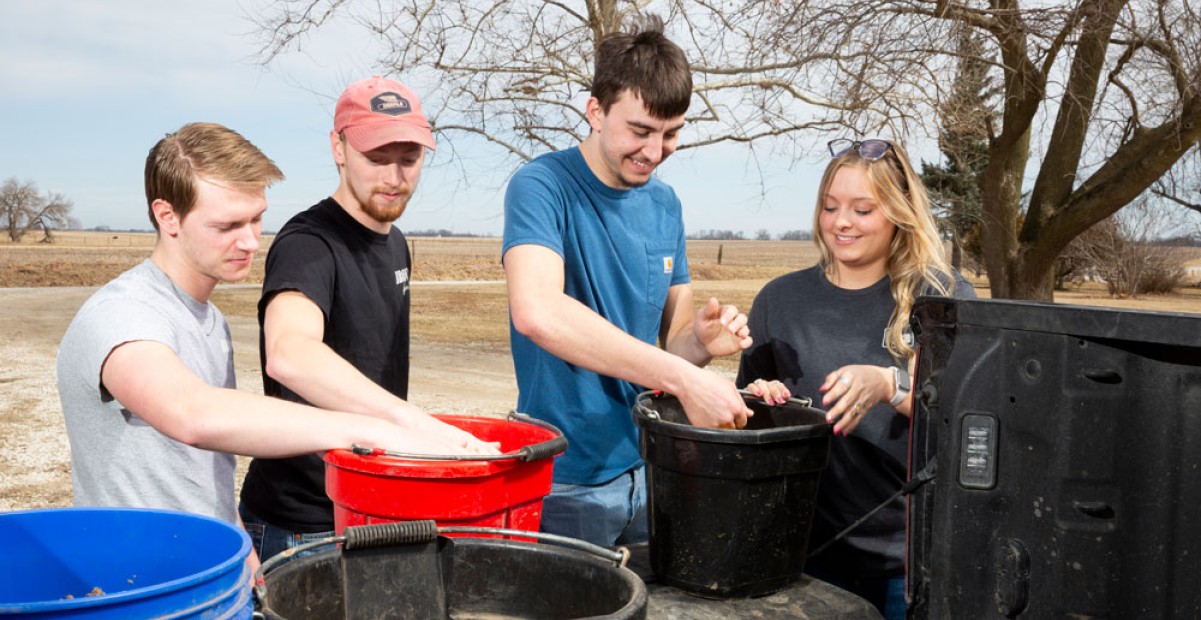Faculty Digest: Penny Haase Wittler

Why is agricultural education important?

To answer that question, let me begin by telling you a little bit about my experience. I went to Paris High School in Paris, Illinois, where I enrolled in the agricultural education program my junior year. My first agriculture class had 22 freshman boys, with just me and two other girls. I soon fell in love with cattle, hogs, horses, goats, sheep, ducks, chickens and a wide array of crop plants and soils. Early in my class, I learned that agriculture is relied upon by every person living on Earth. My agriculture teacher indicated to us daily the importance of agriculture in our lives. He told us that if we liked to eat and wear clothes, we were impacted by agriculture.
An ag ed experience is nothing like the traditional high school classroom experience. Our FFA chapter participated in nearly every contest and regularly attended the state and national conventions. One of my favorite memories was memorizing the FFA creed to recite to the president of our chapter — and because I recited it perfectly, my FFA jacket was paid for by the program. When my jacket arrived, I wore it with pride and wore it often. That jacket meant the world to me, and I valued and respected what it symbolized.
Let’s fast forward to today. With a little more than 28 years at the collegiate level and seven years at the high school level, my work as an agriculture teacher educator continues. My current role at Illinois College is so exciting because it is the only institution in the Jacksonville area that provides agricultural education as an option for college students.
Agricultural education programs are important because many don’t realize they rely on agriculture. Food, fiber and natural resources are items we need every day and, if we didn’t have them, our lives would be very different. Agricultural education programs do teach students how to be farmers, but the program also trains tomorrow’s scientists, nutritionists, geneticists, animal caretakers, animal scientists, veterinarians, crop specialists, horticulturists, teachers and much more. A combination of classroom and laboratory instruction, and practical and meaningful agriculture experiences outside of the classroom, build the foundation for educated consumers and agriculturists.
Another important aspect of the ag ed program is leadership. Students become young leaders through many exciting career development events. Soil judging, crop science judging, livestock judging, public speaking, employment interview techniques, professional skills and knowledge of parliamentary procedure are just a few of the skills students get opportunities to practice. Students in these programs have the opportunity to serve as leaders at the school, district, state and national level. High school students have opportunities to attend leadership conferences, converse with legislators, and achieve awards.
At Illinois College, we want to be a part of this remarkable field. Along with the successful agribusiness management program, agricultural education will serve the Jacksonville community and the surrounding area well by training future ag ed teachers. In Illinois, ag ed and its teacher workforce is growing. There are now 359 ag ed programs in the state — a 15% increase over the last five years. An additional 26 ag teachers began instructing students in that time making the ag teacher workforce 477 — a 20% increase in five years (FCAE, 2021). And the numbers continue to grow. We can help meet this need.
There is no better place than Illinois College to train the incredible teachers who will be in the classroom inspiring future farmers and ag industry leaders.


